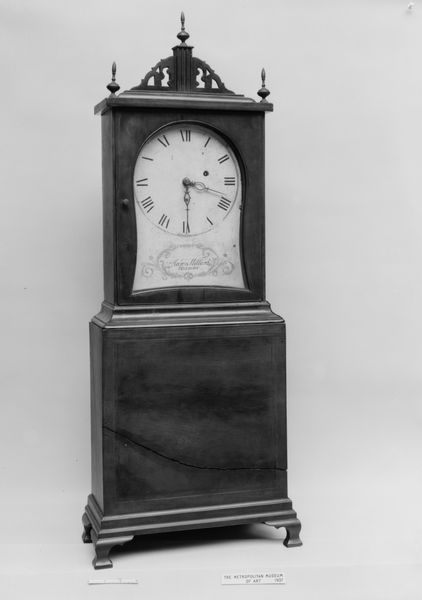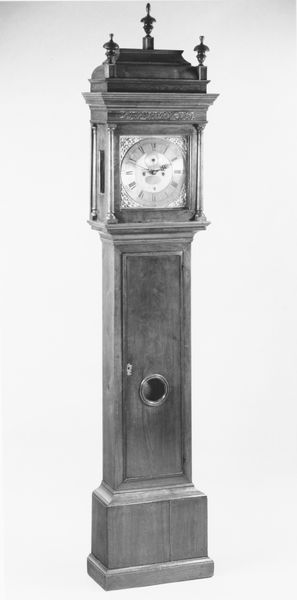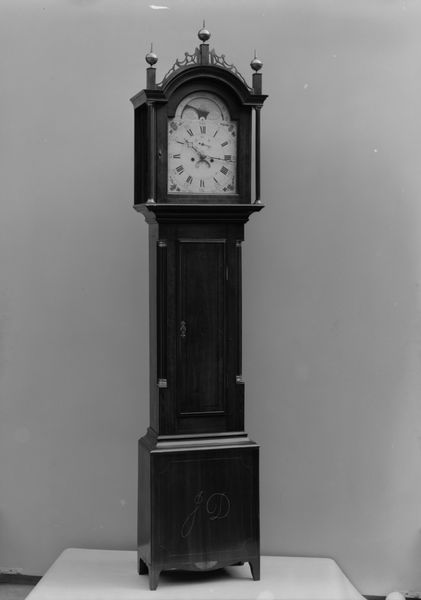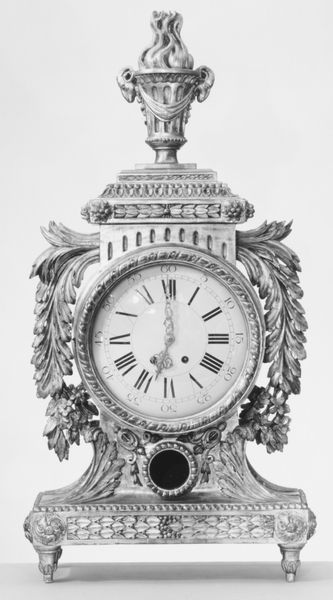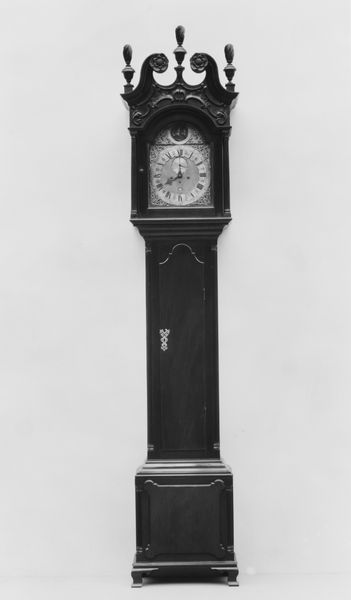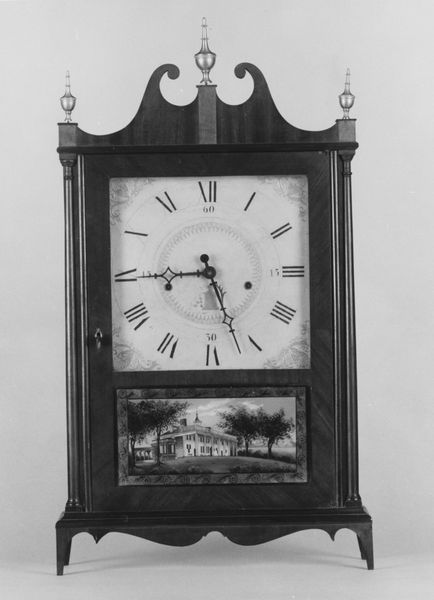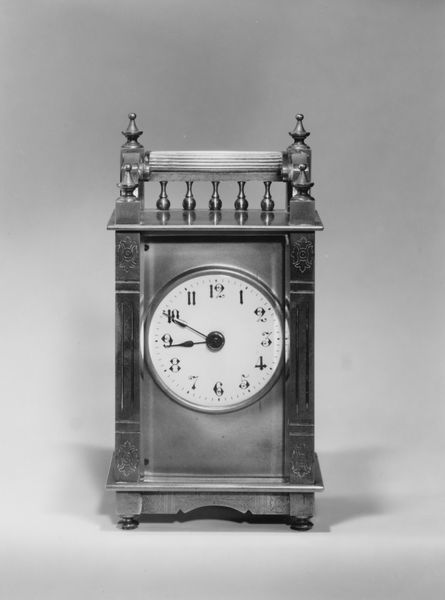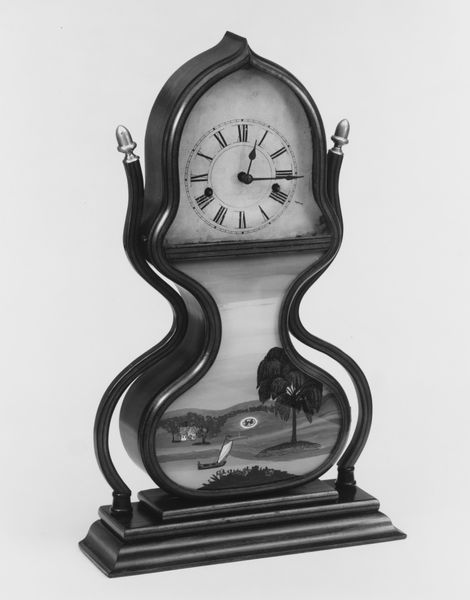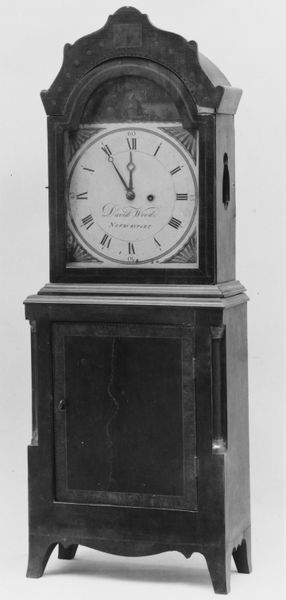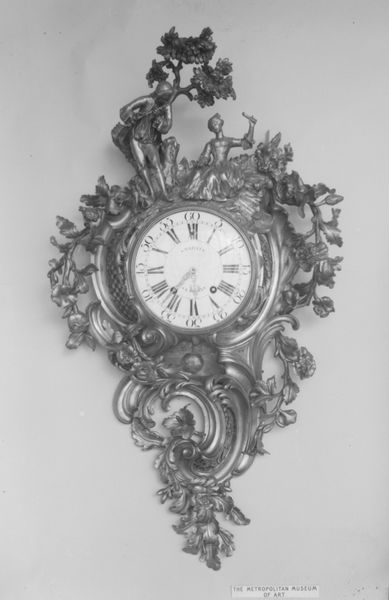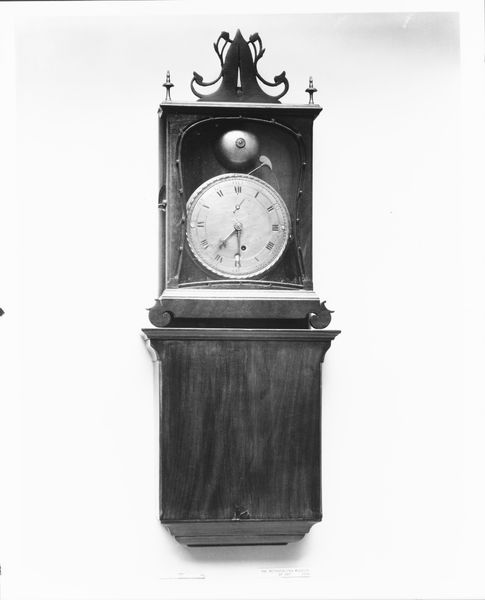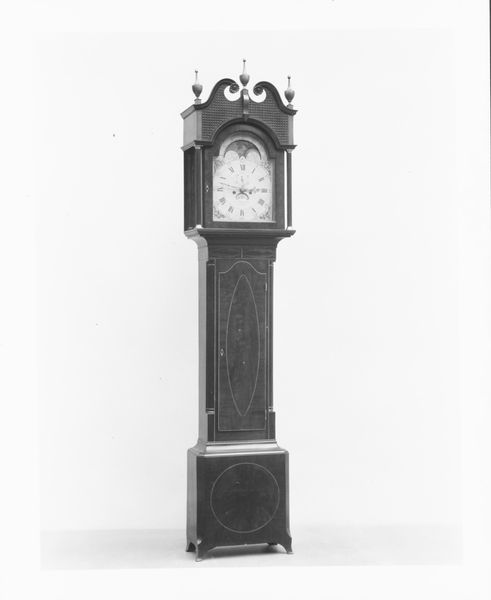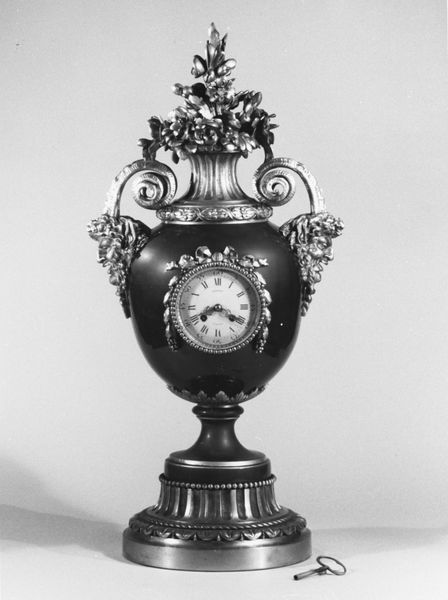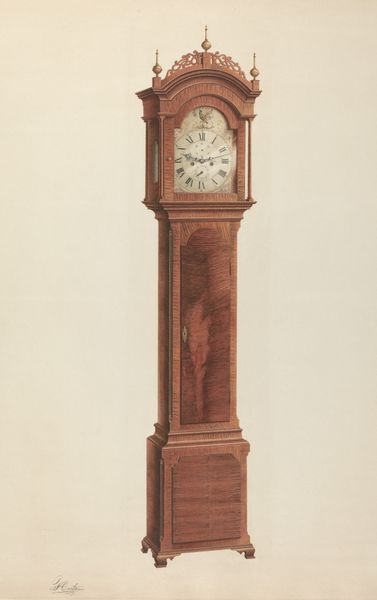
mixed-media, carving, wood
#
neoclacissism
#
mixed-media
#
carving
#
sculpture
#
landscape
#
wood
#
decorative-art
Dimensions: 35 x 12 1/2 in. (88.9 x 31.8 cm)
Copyright: Public Domain
Editor: So, here we have Aaron Willard's "Shelf Clock," dating back to around 1792-1795. It's this striking mixed-media piece – wood, carving, the whole shebang – currently housed at the Met. What initially grabbed me was its almost storybook quality; it’s telling a story beyond just time, you know? What do you make of it? Curator: Absolutely. To me, it’s like stumbling upon a forgotten verse of Americana, if that makes sense. Beyond just telling time, it encapsulates a certain era’s aspirations. What do you think about the lower panel, that bucolic landscape? It's pure Neoclassical idealism, right? A woman, a deer, peaceful nature… It’s interesting how time and an idealized existence are presented together. Does that tension strike you at all? Editor: I hadn't really thought about it that way, but now that you point it out, I can see the contrast between the rigid measurement of time at the top, with this almost timeless scene beneath. It's like the clock is framing an escape. Curator: Precisely! Maybe the clock isn't just marking time, but inviting us to consider how we want to spend it. Given it’s late 18th century, just after the American Revolution, maybe Willard’s speaking about how newly-minted Americans will now be in charge of deciding how their time is spent – they can kick back with the deer! What do you think? Am I overthinking things? Editor: No, no, I love that idea! The clock becomes a symbol of self-determination, which I guess I had never considered a decorative object to convey! This clock is much more rebellious than it initially appeared! Curator: Exactly! That’s the beauty of decorative art from any age – when craft, material, history, aspiration, and function align!
Comments
No comments
Be the first to comment and join the conversation on the ultimate creative platform.
